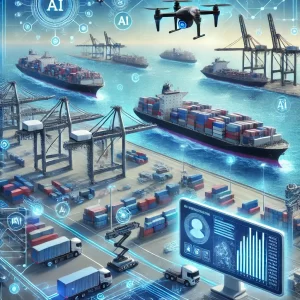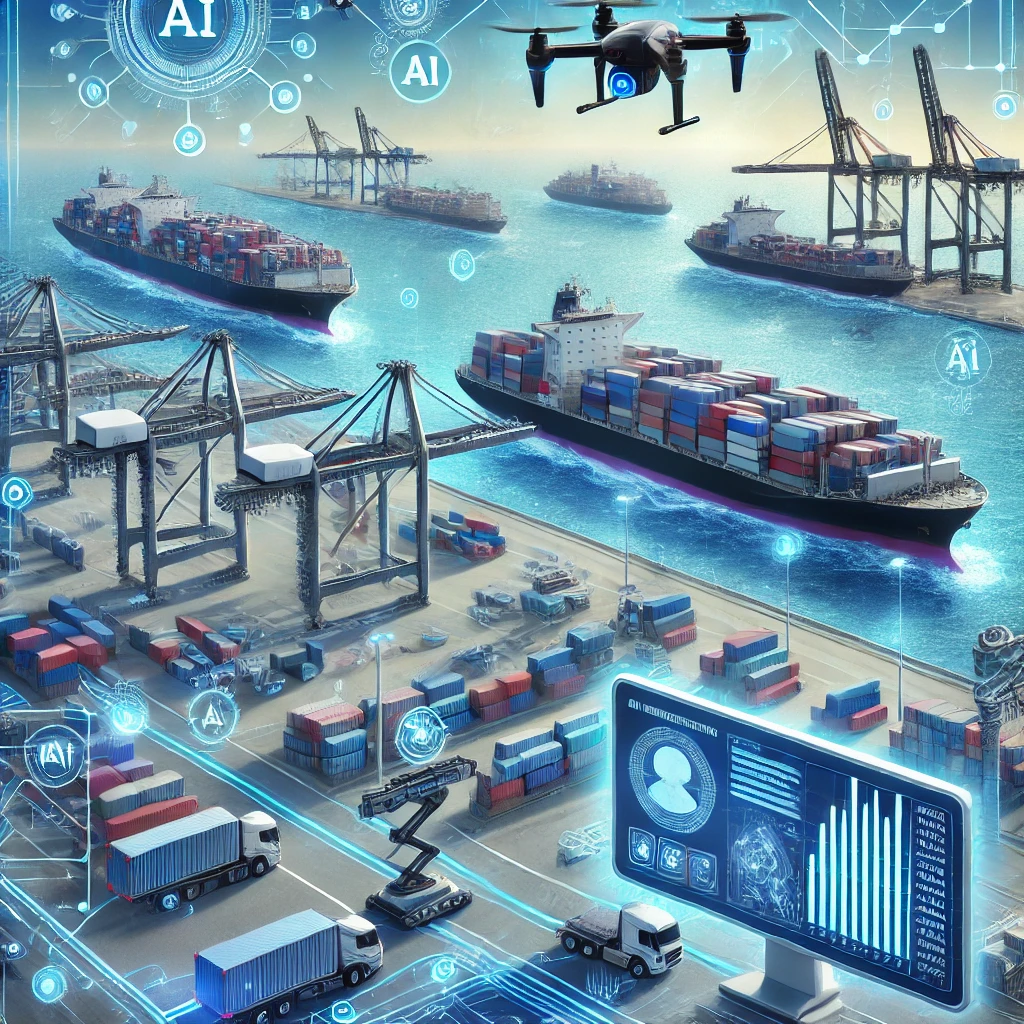The shipping and maritime industry, long considered a cornerstone of global trade and logistics, is undergoing a profound transformation driven by advancements in artificial intelligence (AI). Traditionally characterized by its reliance on manual processes and extensive human expertise, the industry is now embracing AI technologies to enhance efficiency, safety, and sustainability. This trend is reshaping the way maritime operations are conducted, offering new opportunities for innovation and growth.
AI’s Impact on Maritime Operations
Optimizing Vessel Operations
One of the most significant applications of AI in the maritime industry is in optimizing vessel operations. AI algorithms are being used to analyze vast amounts of data, including weather patterns, ocean currents, and fuel consumption rates, to determine the most efficient routes for ships. This not only reduces fuel costs but also minimizes the environmental impact by cutting down on carbon emissions. AI-powered predictive maintenance is another area where technology is making a difference. By monitoring the condition of ship components in real-time, AI can predict when maintenance is needed, preventing costly breakdowns and reducing downtime. This shift from reactive to predictive maintenance is helping shipping companies extend the lifespan of their vessels and improve operational efficiency.
Enhancing Safety and Security
Safety is paramount in the maritime industry, and AI is playing a crucial role in enhancing the safety of maritime operations. AI-driven systems can monitor and analyze data from various sources, such as radar, GPS, and onboard sensors, to detect potential hazards and provide early warnings to crew members. This capability is particularly valuable in busy shipping lanes and congested ports where the risk of collisions is high. AI is also being used to improve the security of maritime assets. With the increasing threat of cyber-attacks on shipping companies and ports, AI-based cybersecurity solutions are becoming essential. These systems can detect and respond to threats in real-time, safeguarding critical infrastructure and ensuring the smooth operation of global supply chains.
Autonomous Shipping
Perhaps the most transformative application of AI in the maritime industry is the development of autonomous ships. These vessels, equipped with AI-powered navigation systems, can operate with minimal or no human intervention. Autonomous ships are expected to revolutionize the industry by reducing the need for large crews, lowering operational costs, and increasing the efficiency of maritime logistics. Several pilot projects are already underway, with companies testing autonomous vessels in various scenarios, from short-haul coastal shipping to long-distance ocean crossings. While fully autonomous shipping is still in its infancy, the progress made so far suggests that it could become a reality within the next decade.

AI in Port and Terminal Management
Smart Ports
Ports are the lifeblood of global trade, and AI is transforming how they are managed. The concept of “smart ports” is gaining traction, with AI being used to streamline port operations, from cargo handling to logistics management. AI-driven systems can optimize the movement of containers, reducing bottlenecks and improving the turnaround time of ships. AI is also enhancing the efficiency of port logistics by enabling real-time tracking and management of cargo. With AI, ports can better predict arrival times, allocate resources more effectively, and reduce the time ships spend docked, leading to significant cost savings.
Automated Terminals
The trend towards automation in container terminals is another area where AI is making a significant impact. Automated guided vehicles (AGVs), cranes, and other terminal equipment are increasingly being controlled by AI systems, which can manage complex logistics operations with precision and efficiency. These AI-driven automated terminals are not only faster but also safer, as they reduce the need for human workers in hazardous environments. Moreover, by optimizing the use of space and resources, AI helps terminal operators increase throughput and reduce operational costs.
Environmental Sustainability
AI for Green Shipping
The maritime industry is under increasing pressure to reduce its environmental footprint, and AI is proving to be a valuable tool in achieving this goal. AI technologies are being used to develop and implement “green shipping” practices, such as optimizing fuel consumption, reducing emissions, and minimizing waste. AI-powered energy management systems on ships can monitor and optimize energy use, ensuring that vessels operate as efficiently as possible. Additionally, AI can help shipping companies comply with environmental regulations by providing real-time data on emissions and other environmental metrics.
AI in Environmental Monitoring
AI is also being used to monitor the health of marine environments. Autonomous underwater vehicles (AUVs) equipped with AI-driven sensors can collect data on water quality, pollution levels, and marine life, providing valuable insights for environmental protection efforts. This technology is particularly important in sensitive areas like coral reefs and protected marine reserves.
Challenges and Future Outlook
While the adoption of AI in the shipping and maritime industry offers numerous benefits, it also presents several challenges. The industry must address issues related to data security, the integration of AI with existing systems, and the need for regulatory frameworks that can accommodate new technologies. Moreover, the shift towards AI-driven operations will require a significant investment in technology and training. Maritime professionals will need to acquire new skills to work alongside AI systems, and companies will need to invest in upgrading their infrastructure to support these technologies. Despite these challenges, the future of AI in the maritime industry looks promising. As technology continues to evolve, AI is set to play an even more significant role in shaping the future of global shipping. From enhancing operational efficiency and safety to promoting environmental sustainability, AI is poised to transform the maritime industry in ways that were previously unimaginable.
The trend of using AI in the shipping and maritime industry marks a new era of innovation and efficiency. As AI technologies continue to develop, they will increasingly become an integral part of maritime operations, offering solutions to some of the industry’s most pressing challenges. For the maritime industry, embracing AI is not just an option—it is a necessity for staying competitive in an increasingly digital and connected world.


Great post.